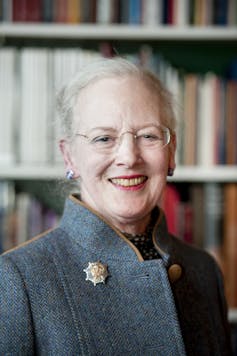To our surprise, one of us (Robert Hazell) appeared in episode one of the Netflix documentary Harry & Meghan.
His contribution was based on our book The Role of Monarchy in Modern Democracy, a comparative study of the other monarchies in western Europe, as well as the UK. Monarchy makes extraordinary demands not just of the monarch but of other close members of the royal family, whose lives are restricted from the moment of their birth.
The first and biggest restriction is that all royals suffer from constant intrusion of the press into their private lives. The worst cases come from the UK, where intense competition in the tabloid press has led to grotesque invasions of privacy.
These range from The People publishing a transcript of a late-night conversation between Prince Charles and Camilla Parker-Bowles, to illegal phone hacking of Prince William’s staff, to paparazzi using dangerous tactics to get photos of then two-year-old Prince George.
But there is a symbiosis between monarchy and the media which makes it difficult for royals to criticise the press. If they do so, they risk bad press coverage – and monarchy depends on the media both to publicise what it does and to maintain popular support.
Royals and the press: a special relationship
Most of the time the media accept the line they are fed, but not always. Alongside all the glossy pictures, there is more serious investigative journalism which keeps monarchies on their toes.
The media also commission regular opinion polls on all the European monarchies. Is the royal family paid too much? Who are your favourite royals? Should the monarch abdicate? Should the country become a republic?
Support remains high in all European monarchies, with polls regularly showing that between 60% and 80% of the people wish to retain the monarchy.
Privacy and freedom from press intrusion is not the only freedom which the royals lack. They also lack free choice of career, freedom to marry who they like, freedom of speech, freedom of religion and freedom to travel.
Take free choice of career. In all European monarchies the heir and others close in the line of succession cannot choose a profession or pursue a business career, lest they be accused of exploiting their position for commercial gain.
Princess Märtha Louise of Norway and Prince Edward in the UK have both been accused of this, as have spouses of minor royals. In the Netherlands, members of the royal family and their spouses cannot take a job without first seeking government approval.
The heir and the spare
The harsh reality is that younger sons such as Prince Harry are ultimately disposable. It is only those in direct line of succession who count.
Other European monarchies have learned to keep the core team as small as possible. It can be just four people. In Norway and Spain it is the King and Queen, the heir and their spouse.

In 2019, the King of Sweden removed five grandchildren from the royal house. In 2022, Queen Margrethe of Denmark followed suit, stripping four grandchildren of their royal titles. They are the children of her younger son Prince Joachim and the decision caused a serious rift in the royal family.
The UK is apparently following suit. King Charles wants a smaller, streamlined monarchy of perhaps just half a dozen people.
Until 2020, the team was much larger, with 15 royals who carried out public engagements. It has since shrunk with the departure of Harry and Meghan, as well as Prince Andrew and now with the death of the Queen.
It will soon shrink further with the eventual retirement of the older royals who still undertake some public engagements. But with a smaller team the royal family will be able to do a lot less.
That will require careful management of public expectations, not just in the UK but in the 14 other countries around the world where Charles is now king.
Have Harry and Meghan been uniquely victimised?
The Netflix documentary conveys the impression that Harry and Meghan have been uniquely victimised. But, aside from the alleged racism, many of the difficulties they faced are shared by all the royal families of Europe.
It is monarchy which is unique, in the extraordinary demands which it makes of close members of the royal family. The public tend to think that royals lead very privileged lives, in glittering palaces with lots of servants. But in truth it is a gilded cage.
In a piece written in 2020, we said about the departure of Harry and Meghan:
It should be possible for minor royals to opt out of the gilded cage if they find the restrictions too great. But opting out would need to be total: giving up not just their public duties but their public funding, their royal titles, their security – trying as far as possible to become private people.
We leave viewers of the Netflix series to judge to what extent that has proved possible.
Robert Hazell is Professor of Government and the Constitution at University College London
Bob Morris has received some funding from the Rowntree Foundation. He is a non-stipendiary Honorary Senior Research Associate at the Constitution Unit, University College London.
This article was originally published on The Conversation. Read the original article.







